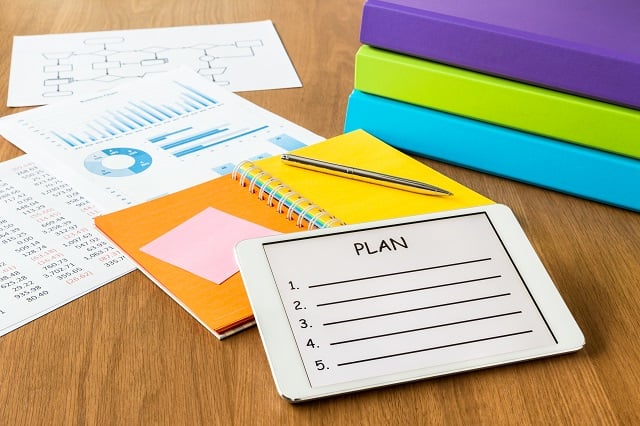
Everyone agrees that being financially organized makes managing money a whole lot easier. But how do you know where to begin?
If you’re wondering what goes into being financially organized, you’ve landed in the right place. Not too many people are overly enthusiastic about setting aside time to go through all their financial documents to create a system of organization. That being said, being financially organized can certainly alleviate a lot of the stress and uncertainty that may accompany your financial life.
With a little time and clear direction, you can get your finances organized painlessly. Here’s what being financially organized looks like and how you can start implementing these behaviors today.
The Four Steps of Good Financial Organization
Here are four tips for good financial management. Follow them and you’ll finally have the proper control over your financial life with these smart money habits.
- Track Your Spending. A person with their finances in order tracks their spending. They record every dollar they spend, no matter how small the transaction is. Being financially organized requires that you know where your money is going. In fact, once you establish a good cash flow management system, you’re more likely to direct your future dollar bills rather than track them after the fact. This might be the most fundamental practice of good financial organization. Everything else flows from knowing where your money goes on a weekly, monthly, and yearly basis. If you don’t track your spending carefully, it makes it challenging to stick to a budget, reach financial goals, or make necessary adjustments when something unexpected happens.
- Live Within Your Means. Financially organized people create a budget and stick to it. They know how much money they have coming in, where it’s going, and maintain a monthly budget accordingly. Once you’ve tracked your spending for two or three months, making a budget that effectively covers your fixed expenses, prioritizes your long-term savings goals, and accounts for short-term needs and wants is much more intuitive.
- Automate Finances. When you have a strong system in place to track your money and and live within you means, you can start automating some of your finances. Automating your finances can save you time and streamline your regular activities. Good money managers have a detailed system for paying bills and saving. They can set up automatic bill pay through their checking accounts or credit cards to cover monthly expenses, as well as automatic deposits in to savings accounts toward retirement and other financial goals.
- Communicate Often. Lastly, while financial organization may fall to one person to maintain, it shouldn’t be a one-person job. Those who are financially organized are able to communicate often with other members of the household and help keep everyone on the same page.
The Important Job of Financial Organization
Having your finances organized is an important part of managing and increasing your wealth.
If you want to increase your wealth, it’s within your best interest to get your finances in order as soon as possible. It’s amazing what this level of organization can do for your financial well-being.
Good financial organization means knowing where your money is and where it’s going. It also means paying your bills on time and avoiding unnecessary penalties and interest payments.
Conclusion
Now that you know what some of the habits of financially organized people are, it’s time to start following their example. That means starting today, not tomorrow or next week.
If you want the benefits that financially organized people gain by keeping their money in order, then start doing what they do right away. It won’t take long before you begin to see the fruits of this necessary labor. Once you do begin to see the increased wealth and stability that good financial organization can achieve, you’ll wonder why you didn’t start working towards it sooner.












